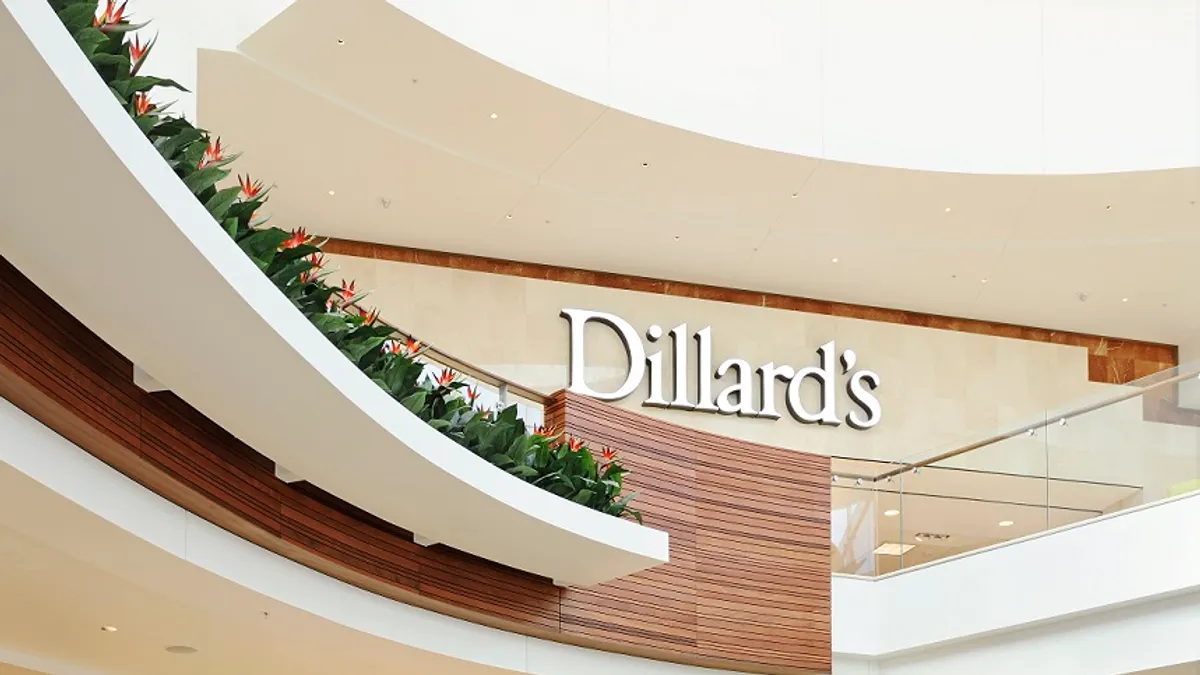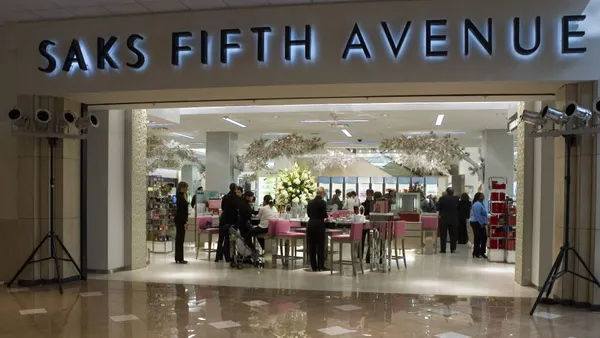Dive Brief:
-
Dillard’s this week reported that total retail sales, excluding its construction business, fell 5% to $1.4 billion; comps also fell 5%, a 300 basis point decline from the previous quarter, per a UBS analysis.
-
Cosmetics performed best in the period, with accessories, shoes and men’s apparel the weakest, according to Dillard’s financial filing. Retail gross margin contracted to 39.1% from 40.4% last year.
-
The Southern department store in June closed its Eastwood Mall Clearance Center in Niles, Ohio; it now runs 273 Dillard’s stores, including 28 clearance centers, across 30 states.
Dive Insight:
Dillard’s started the year with a series of new collections, dropping M.G. Style for Antonio Melani, partnering with influencer Caelynn Bell and opening luxury concept The Coterie Shop — all part of its ongoing practice of differentiating its merchandise.
But while executives said its strong assortment helped the department store beat expectations last quarter, Q2 was a different story.
“We are disappointed with our weak performance in the second quarter,” Dillard’s CEO William Dillard said in a statement. “While the consumer environment remained challenged, our expenses were up, squeezing our profitability. We are working to address this. We ended the quarter with over $1 billion in cash and short-term investments.”
UBS analysts led by Mauricio Serna were disappointed too, according to a Thursday research note, though perhaps not all that surprised, as they have previously said they expect ongoing sales declines and margin pressure.
Dillard’s reported flat margins from last year in men’s apparel and accessories; slightly lower margins in cosmetics, juniors’ apparel and children’s apparel; and moderately lower gross margins in shoes, ladies’ accessories, apparel and lingerie, and home and furniture.
UBS analysts warned that gross margin contraction is likely to continue in Q3 and expressed skepticism that Dillard’s can effectively wrestle its expenses, in light of its “fixed costs and lower credit income.”
According to Dillard’s filing, Q2 consolidated operating expenses reached $433.6 million, representing 29.1% of sales, up from $412.6 million, or 26.3% of sales, a year ago. The 5% bump came mostly from payroll, the company said.
The company faces an uphill climb as consumers gravitate to alternatives to department stores, including off-price retailers and mass merchants like Target.
“We think structural market share losses against other retail channels with more appealing value propositions should pressure Dillard’s sales and margins,” UBS analysts said. “Importantly, we believe the market is underappreciating the impact on ... earnings from this factor.”
















